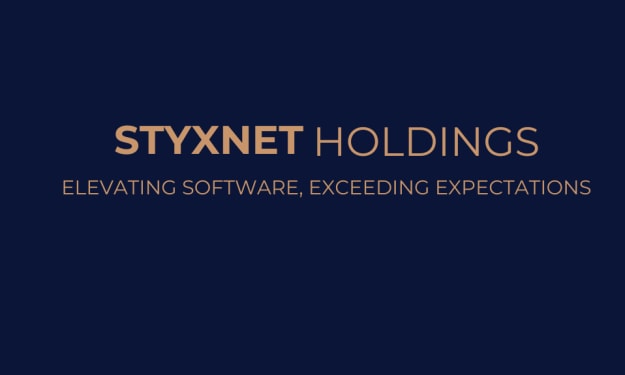The Shifting Sands of Science: How Visa Restrictions Continue to Impact Global Research (2024)
The Global Equation: Where Minds Meet, Miracles Happen

The Shifting Sands of Science: How Visa Restrictions Continue to Impact Global Research (2024)
In the aftermath of 9/11, the US implemented stricter visa controls, aiming to bolster national security. While this was a necessary response at the time, the ongoing impact on the scientific landscape is a cause for concern. Foreign researchers have historically been a driving force behind American scientific innovation, and visa restrictions continue to create hurdles for these talented minds. This report dives into the current state of affairs, exploring the latest trends, potential consequences, and proposed solutions.
Why This Still Matters: A Globalized Race for Talent
Scientific progress thrives on collaboration and the exchange of ideas across borders. The US has attracted brilliant researchers from around the world, fostering groundbreaking discoveries in everything from gene editing to artificial intelligence. However, visa restrictions continue to pose significant challenges for these researchers, potentially hindering American scientific leadership in an era of fierce global competition.
China's rise as a scientific powerhouse exemplifies this global competition. Through its Thousand Talents program, China offers lucrative salaries, streamlined visa processes, and access to state-of-the-art facilities, attracting top researchers from across the globe. A recent study by the Center for Strategic and International Studies (CSIS) found that the number of US visas issued to Chinese researchers in STEM fields dropped by 33% between 2018 and 2021 [1]. This trend coincides with a rise in applications from these researchers to universities in Europe and Asia, where visa processes are perceived as less cumbersome.
The potential consequences are significant. A shift in the balance of scientific power could impact everything from the development of life-saving drugs to the race for advancements in artificial intelligence and clean energy technology. Finding a way to balance national security concerns with fostering a vibrant scientific community is paramount.
The Human Cost: Beyond Delays and Bureaucracy
Imagine Dr. Anika Sharma, a rising star in quantum computing research from India. Securing a coveted position at a prestigious US university, her excitement quickly turns to frustration as she navigates the labyrinthine visa application process. Months turn into years, her research momentum stalls, and valuable collaborations are put on hold. This is not a hypothetical scenario. A recent survey by the National Academies of Sciences, Engineering, and Medicine (NASEM) found that 42% of foreign researchers in the US reported experiencing delays in their visa applications, with a negative impact on their research productivity [2].
The human cost extends beyond individual researchers. Delays and uncertainties can have a chilling effect on international scientific collaboration, hindering the exchange of ideas crucial for scientific progress.
The Evolving Landscape: A Looming Talent Shortage?
A 2023 report by the National Science Foundation (NSF) paints a concerning picture [3]. The report highlights a decline in the number of foreign graduate students enrolled in US STEM programs. This trend coincides with a rise in applications from these students to universities in Europe and Asia. The potential consequences of this talent shortage are significant. A 2022 study by the American Institutes for Research found that teams with a higher proportion of foreign-born researchers in the US produced 25% more highly cited research papers [4].
Beyond graduate students, the US is also losing out on attracting established mid-career researchers. A recent article in Nature highlighted the case of Dr. Li Wei, a prominent materials scientist from China. Despite holding prestigious fellowships and having published extensively in top scientific journals, Dr. Wei's application for a permanent residency visa was denied due to administrative hurdles [5]. This raises concerns about the long-term impact of visa restrictions on attracting and retaining top scientific talent.
Beyond Security: A Call for Collaborative Solutions
National security remains a top priority. However, experts argue that current vetting processes can be streamlined without compromising safety. Dr. Richard Wang, a security studies expert at Johns Hopkins University, suggests a risk-based approach, focusing on individuals deemed high-risk while expediting applications for researchers in less sensitive fields [6].
Universities and research institutions are also playing a role in advocating for change. The Coalition for National Science Funding, a group representing leading American universities, has called for increased collaboration between immigration and scientific institutions to expedite visa applications for qualified researchers [7]. Additionally, some universities are piloting programs that provide temporary visas with clear pathways to permanent residency for foreign researchers making significant contributions.
Looking Forward: The Need for a Multifaceted Approach
The issue of visa restrictions and their impact on the scientific landscape in the US remains a complex and evolving one. National security is a legitimate concern, but it's crucial to find a balance that fosters a vibrant scientific community that can compete on a global scale. Potential solutions include:
Implementing a risk-based approach to visa vetting.
Increasing collaboration between immigration and scientific institutions to streamline application processes
- Enhancing communication and transparency: The current visa application process is often shrouded in mystery, leaving researchers anxious and uncertain about the status of their applications. Implementing a more transparent system with clear timelines and communication channels would alleviate stress and allow researchers to better plan their careers.
- Promoting international research partnerships: While visa restrictions may hinder individual mobility, fostering international research collaborations can still be achieved. Investing in programs that support joint research projects between US and foreign institutions can leverage expertise and resources without requiring physical relocation.
- Addressing the underlying causes of brain drain: While visa restrictions are a significant factor, other issues can also contribute to the exodus of scientific talent from the US. These include concerns about long-term career prospects, salary competitiveness compared to other countries, and the overall research environment. Addressing these issues can make the US a more attractive destination for foreign researchers.
The Road Ahead: Balancing Security and Innovation
The global scientific landscape is constantly evolving, and the US cannot afford to be left behind. Striking a balance between national security and fostering a vibrant scientific community is crucial for continued innovation and economic prosperity. By implementing a multifaceted approach that addresses visa processing inefficiencies, promotes international collaboration, and creates a more welcoming environment for researchers, the US can ensure it remains a leader in the global scientific arena.
The Global Conversation:
The issue of visa restrictions and their impact on scientific progress is not just an American one – it's a global conversation. As countries compete for top talent, a collaborative approach that balances security concerns with fostering open scientific exchange is essential. By acknowledging the human cost of bureaucratic hurdles and the immense benefits of a diverse research community, we can ensure that scientific discovery continues to flourish on a global scale.
The Ripple Effects: Beyond the US Scientific Landscape
The impact of visa restrictions on the US scientific landscape extends beyond its borders. Here's a look at the potential consequences for other countries and the global scientific community as a whole:
- Brain Drain from Developing Nations: While the US competes with China and Europe for established researchers, developing nations often lose talent to these more developed countries. This can hinder their own scientific development and exacerbate existing inequalities in research capabilities.
- Slower Progress on Global Challenges: Many of the world's most pressing challenges, such as climate change and pandemics, require international collaboration. Visa restrictions can impede the free flow of ideas and expertise needed to tackle these issues effectively.
- Erosion of Scientific Trust: Lengthy visa delays and uncertainties can discourage international scientific collaboration. This can lead to a breakdown in trust and hinder the open exchange of information crucial for scientific progress.
A Call to Action: Building a More Collaborative Future
The current situation necessitates a global conversation about how to balance national security concerns with fostering a vibrant international scientific community. Here are some potential solutions:
- International Agreements on Research Mobility: Developing standardized visa frameworks for researchers could streamline application processes and reduce bureaucratic hurdles.
- Increased Funding for International Research Collaboration Programs: Investing in programs that support joint research projects and knowledge exchange between institutions from different countries can foster innovation and mutual benefit.
- Promoting Open Science Practices: Open access to research findings and data can help bridge geographical barriers and facilitate collaboration even when physical mobility is restricted.
By working together, countries can create a more open and collaborative scientific environment. This will not only benefit individual nations but also ensure that scientific progress continues to address the most pressing challenges facing humanity on a global scale.
Conclusion:
The debate surrounding visa restrictions and their impact on the scientific landscape is far from settled. Finding a solution requires a multifaceted approach that prioritizes national security while fostering a vibrant international research community. By acknowledging the human cost of bureaucratic hurdles, embracing collaboration, and promoting open science practices, we can ensure that scientific discovery continues to flourish for the betterment of all.
About the Creator
suren arju
Hi there! I'm Suren, your startup guide. Entrepreneur, writer, dreamer - I share insights, tips & stories to fuel your startup journey. Ready to explore, learn & win together? Join me & let's redefine how we launch, learn & leap!
Enjoyed the story? Support the Creator.
Subscribe for free to receive all their stories in your feed. You could also pledge your support or give them a one-off tip, letting them know you appreciate their work.





Comments
There are no comments for this story
Be the first to respond and start the conversation.